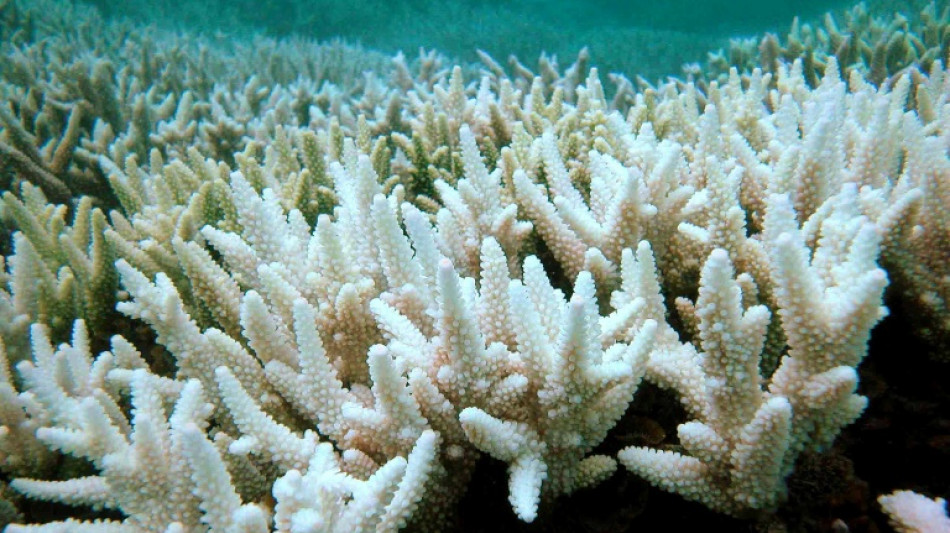
-
 Henman says Raducanu needs more physicality to rise up rankings
Henman says Raducanu needs more physicality to rise up rankings
-
France recall fit-again Jalibert to face Scotland

-
 Harry Styles fans head in one direction: to star's home village
Harry Styles fans head in one direction: to star's home village
-
Syrian jailed over stabbing at Berlin Holocaust memorial

-
 Second Iranian ship heading to Sri Lanka after submarine attack
Second Iranian ship heading to Sri Lanka after submarine attack
-
Middle East war spirals as Iran hits Kurds in Iraq

-
 Norris hungrier than ever to defend Formula One world title
Norris hungrier than ever to defend Formula One world title
-
Fatherhood, sleep, T20 World Cup final: Henry's whirlwind journey

-
 Conservative Nigerian city sees women drive rickshaw taxis
Conservative Nigerian city sees women drive rickshaw taxis
-
T20 World Cup hero Allen says New Zealand confidence high for final

-
 The silent struggle of an anti-war woman in Russia
The silent struggle of an anti-war woman in Russia
-
Iran hits Kurdish groups in Iraq as conflict widens

-
 China sets lowest growth target in decades as consumption lags
China sets lowest growth target in decades as consumption lags
-
Afghans rally against Pakistan and civilian casualties

-
 South Korea beat Philippines 3-0 to reach women's quarter-finals
South Korea beat Philippines 3-0 to reach women's quarter-finals
-
Mercedes' Russell not fazed by being tipped as pre-season favourite

-
 Australia beat Taiwan in World Baseball Classic opener
Australia beat Taiwan in World Baseball Classic opener
-
Underdogs Wales could hurt Irish after Scotland display: Popham

-
 Gilgeous-Alexander rules over Knicks again in Thunder win
Gilgeous-Alexander rules over Knicks again in Thunder win
-
Hamilton reveals sequel in the works to blockbuster 'F1: The Movie'

-
 Alonso, Stroll fear 'permanent nerve damage' from vibrating Aston Martin
Alonso, Stroll fear 'permanent nerve damage' from vibrating Aston Martin
-
China boosts military spending with eyes on US, Taiwan

-
 Seoul leads rebound across Asian stocks, oil extends gains
Seoul leads rebound across Asian stocks, oil extends gains
-
Tourism on hold as Middle East war casts uncertainty

-
 Bayern and Kane gambling with house money as Gladbach come to town
Bayern and Kane gambling with house money as Gladbach come to town
-
Turkey invests in foreign legion to deliver LA Olympics gold

-
 Galthie's France blessed with unprecedented talent: Saint-Andre
Galthie's France blessed with unprecedented talent: Saint-Andre
-
Voice coach to the stars says Aussie actors nail tricky accents

-
 Rahm rejection of DP World Tour deal 'a shame' - McIlroy
Rahm rejection of DP World Tour deal 'a shame' - McIlroy
-
Israel keeps up Lebanon strikes as ground forces advance

-
 China prioritises energy and diplomacy over Iran support
China prioritises energy and diplomacy over Iran support
-
Canada PM Carney says can't rule out military participation in Iran war

-
 Verstappen says new Red Bull car gave him 'goosebumps'
Verstappen says new Red Bull car gave him 'goosebumps'
-
Swiss to vote on creating giant 'climate fund'

-
 Israel, Iran launch fresh attacks as war spreads
Israel, Iran launch fresh attacks as war spreads
-
Google to open German centre for 'AI development'

-
 Winter Paralympics to start with icy blast as Ukraine lead ceremony boycott
Winter Paralympics to start with icy blast as Ukraine lead ceremony boycott
-
Sci-fi without AI: Oscar nominated 'Arco' director prefers human touch

-
 Ex-guerrillas battle low support in Colombia election
Ex-guerrillas battle low support in Colombia election
-
'She's coming back': Djokovic predicts Serena return

-
 Hamilton vows 'no holding back' in his 20th Formula One season
Hamilton vows 'no holding back' in his 20th Formula One season
-
Two-thirds of Cuba, including Havana, hit by blackout

-
 US sinks Iranian warship off Sri Lanka as war spreads
US sinks Iranian warship off Sri Lanka as war spreads
-
ReadyCode Launches ReadyM, a Creative Multiplayer Platform Bringing Community-Driven Gameplay to the World’s Most Beloved Single-Player Games

-
 Physical Gold IRA: IRA Gold Investment Guide Released for 2026
Physical Gold IRA: IRA Gold Investment Guide Released for 2026
-
InterContinental Hotels Group PLC Announces Transaction in Own Shares - March 05

-
 After oil, US moves to secure access to Venezuelan minerals
After oil, US moves to secure access to Venezuelan minerals
-
Arteta hits back at Brighton criticism after Arsenal boost title bid

-
 Carrick says 'defeat hurts' after first loss as Man Utd boss
Carrick says 'defeat hurts' after first loss as Man Utd boss
-
Ecuador expels Cuba envoy, rest of mission


Corals doomed even if global climate goals met: study
Coral reefs that anchor a quarter of marine wildlife and the livelihoods of more than half-a-billion people will most likely be wiped out even if global warming is capped within Paris climate goals, researchers said Tuesday.
An average increase of 1.5 degrees Celsius above pre-industrial levels would see more than 99 percent of the world's coral reefs unable to recover from ever more frequent marine heat waves, they reported in the journal PLOS Climate.
At two degrees of warming, mortality will be 100 percent according to the study, which used a new generation of climate models with an unprecedented resolution of one square kilometre.
"The stark reality is that there is no safe limit of global warming for coral reefs," lead author Adele Dixon, a researcher at the University of Leeds' School of Biology, told AFP.
"1.5C is still too much warming for the ecosystems on the frontline of climate change."
The 2015 Paris Agreement enjoins nearly 200 nations to keep global heating "well below" 2C (36 degrees Fahrenheit).
But with more deadly storms, floods, heatwaves and droughts after only 1.1C of warming to date, the world has embraced the treaty's more ambitious aspirational goal of a 1.5C limit.
A landmark report in August by the UN's IPCC climate science panel said global temperatures could hit the 1.5C threshold as soon as 2030.
In 2018, the IPCC predicted that 70 to 90 percent of corals would be lost at the 1.5C threshold, and 99 percent if temperatures rose another half-a-degree.
The new findings suggest those grim forecasts were in fact unduly optimistic.
- Marine heatwaves -
"Our work shows that corals worldwide will be even more at risk from climate change than we thought," Dixon said.
The problem is marine heatwaves and the time it takes for living coral to recover from them, a healing period known as "thermal refugia".
Coral communities usually need at least 10 years to bounce back, and that's assuming "all other factors" -- no pollution or dynamite fishing, for example -- "are optimal", said co-author Maria Berger, also at Leeds.
But increased warming is reducing the length of thermal refugia beyond the ability of corals to adapt.
"We project that more than 99 percent of coral reefs will be exposed at 1.5C to intolerable thermal stress, and 100 percent of coral reefs at 2C," Berger told AFP.
Australia's Great Barrier Reef, the largest coral system in the world, has seen five mass bleaching events in the last 25 years.
An unpublished study obtained by AFP, written by experts at the US National Oceanic and Atmospheric Administration's Coral Reef Watch unit, says the Great Barrier Reef was in the grips of a record-breaking heat spell yet again in November and December.
Oceans absorb about 93 percent of the excess heat from greenhouse gas emissions, shielding land surfaces but generating huge, long-lasting marine heatwaves that are already pushing many species of corals past their limits of tolerance.
A single so-called bleaching event in 1998 caused by warming waters wiped out eight percent of all corals.
Coral reefs cover only a tiny fraction -- 0.2 percent -- of the ocean floor, but they are home to at least a quarter of all marine animals and plants.
Besides supporting marine ecosystems, they also provide protein, jobs and protection from storms and shoreline erosion for hundreds of millions of people worldwide.
The value of goods and services from coral reefs is about $2.7 trillion per year, including $36 billion in tourism, the report said.
Global warming, with the help of pollution, wiped out 14 percent of the world's coral reefs from 2009 to 2018, leaving graveyards of bleached skeletons where vibrant ecosystems once thrived, recent research has shown.
Loss of coral during that period varied by region, ranging from five percent in East Asia to 95 percent in the eastern tropical Pacific.
Th.Berger--AMWN